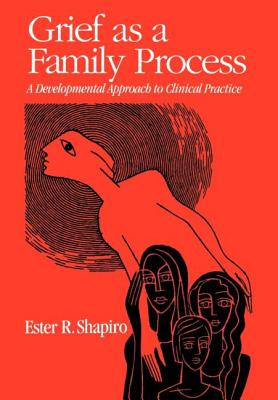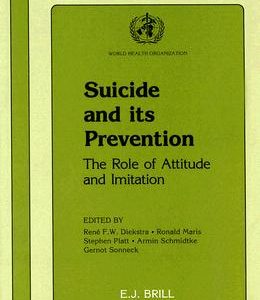Grief as a Family Process: A Developmental Approach to Clinical Practice
$44.10
Description
Grief is a universal human response to the loss of a loved one, not a psychopathological condition; nonetheless, mental health professionals are often called upon to help families in grief. Accessibly written, Grief as a Family Process draws on many sources, such as developmental psychology, psychoanalytic and family systems theory, and cultural anthropology. It extends and integrates these approaches into a systemic developmental model that emphasizes the ways grief can enhance the emotional growth of the family system. The model presented here views grief as a natural process through which a therapist can help families live, and even grow. Using examples from a wide variety of cultural traditions, this book argues for a transformation of attachment to, instead of detachment from, the deceased family member to sustain and enhance family development.
The book focuses in turn on the bereaved adult, child, and family, bringing sociocultural perspectives on bereavement to bear on the discussion. After an overview of the systemic developmental approach, the individual grief of adults and children is viewed in systemic developmental context. The treatment course of a 36-year-old woman following the death of her husband clearly illustrates how a grieving individual can create a new sense of self through transformations in her or his inner relationship with the deceased. Chapters on bereavement in childhood emphasize the important role of grieving parents in determining the range of possibilities available to grieving children, who even more than adults need an enduring image of their dead family member in order to proceed with their still unfolding development. The book then looks at grieving families and their shared development, using ideas from family systems theory and family development to demonstrate how shared strategies for stability are a necessary part of family adjustment to the death of a family member. Clinical vignettes illustrate family responses to grief, traditionally interpreted as pathological, reframed in a normal developmental context, including special situations such as the death of a child. Chapters on cultural and social factors in bereavement supply a cross-cultural perspective, examining how cultural beliefs can be both resources and barriers in providing support for grieving families. The final chapter outlines the approach to assessment and treatment that is implicit throughout the clinical examples in the book. The result is a clinically useful volume that also provides a new perspective on the process and outcome of grieving. The systemic developmental model offered in this book allows practitioners from different disciplines to support grieving families as they create new sources of relational stability that will enhance ongoing development. Abundant in clinical detail, the book is indispensable to any helping professional who works with grieving families, including psychiatrists, psychologists, social workers, family therapists, physicians and nurses who work with dying patients and their families, hospice and patient home-care workers, clergy, and many others. The book also serves as a text in courses on bereavement, family development, family and child therapy, and child developmental psychopathology.Author: Shapiro, Ester R
Topic: Psychology
Media: Book
ISBN: 898621968
Language: English
Pages: 307
Additional information
| Weight | 1.38 lbs |
|---|---|
| Dimensions | 9.23 × 6.3 × 1.16 in |















Reviews
There are no reviews yet.